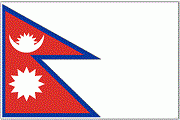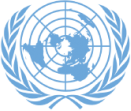Mr. Chair,
I would like to thank the Secretary-General for his comprehensive report under this agenda item.
I associate this statement with the statement delivered by the Islamic Republic of Iran on behalf of the Non -Aligned Movement.
Mr. Chair,
Nepal attaches high importance to the establishment of rule of law both at national and international level.
Nepali people's persistent political struggles, until they were successful in promulgating a new constitution written by their own elected representatives in the year 2015, is a testimony to our unwavering commitment to the rule of law at the national level.
Political pluralism, periodic elections, inclusion and proportional representation, fundamental freedoms and human rights, rule of law, independent judiciary, separation of powers and checks and balances, and people’s sovereignty are the major features of our Constitution.
The legal provisions fully comply with the principles of 'equality before the law'. Discrimination among the people on any ground such as race, sex, language, religion, culture, political opinion, etc., –is against the law.
The Criminal Procedure Code and Civil Code which entered into effect last year aim at strengthening rule of law and ensuring accountability in cases of both civil and criminal liability.
Nepal remains committed to its international obligations through the domestication of relevant international instruments. Nepal is a State party to 24 different human rights related international instruments, including 7 out of 9 core instruments.
Our laws provide that obligations under international treaties to which we are a party have equal legal effect to that of our domestic laws.
Nepal accords high priority for the rule of law in its resolve to drive the country towards the new era of peace and development. The principle of good governance underlies all policies and plans of the Government. We pursue the policy of zero-tolerance against corruption. Similarly, the government lays utmost priority on transparency and accountability in all public affairs.
Mr. Chair,
While Nepal remains steadfast in ensuring that the rule of law at national level, it attaches equal importance to the rule of law at international level. That is why we stand for the principle of sovereign equality among states and democratic, inclusive, just, fair international order.
In recent years, increasing incidents of terrorism, transnational organized crimes, violent extremism, and hate speeches, among others, have been seriously undermining our efforts of ensuring the rule of law at both national and international level.
The rule of law, however, should not be used as a cover for domination of one country by another. Every nation, regardless of their size and state of development, should abide by international legal system and customary international law in the multilateral decision-making process.
It is hard to defend and sustain democracies within the borders of nations, if the global community of nations is dominated by undemocratic mechanisms.
As we move ahead in achieving the SDGs, we must be fully aware that the rule of law is not only a stand-alone goal, but it is also a critical enabler of other SDGs. In fact, maintaining rule of law is about giving equal opportunities to everyone and ‘leaving no one behind’.
To conclude, Mr. Chair, rule of law is never a ‘thing’ done. It is always in the process of ‘becoming’. We must believe in it and work towards it. Such work may be gradual and quiet but it should be sustainable. And, sustainable efforts are those, which take into account the local realities, and keep people at the centre with a view to empowering them. Equally, global governance must be based on rule of law that treats all countries as sovereign equals.
I thank you.


